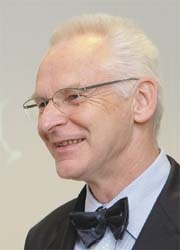Six hospitals - one PACS
Asklepios invests € 7 million to network Hamburg hospitals
The LBK Hamburg clinics (General Hospitals Hamburg) became part of the Asklepios group in 2002 and have seen continuous modernisation ever since.

A new picture archiving and communication system (PACS) is enabling image diagnostics with chronological synchronicity and interdisciplinary therapy decisions. In Germany, this citywide PACS networking of several clinics – totalling 5,500 beds – is unique on this scale.
Indeed, with an investment budget of around €7 million, the project ranks among the largest PACS installations currently underway in Europe. The concept, which is opening up completely new means of communication between radiologists and clinicians as well as between individual hospitals, is being developed using a PACS system supplied by Philips Medical Systems.
The hospital management is anticipating a drastic acceleration of work processes and suggests the average inpatient hospital stay will be cut by about a day in the future.
01.05.2006





